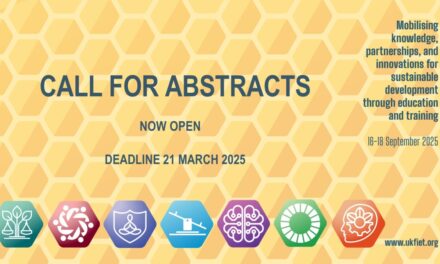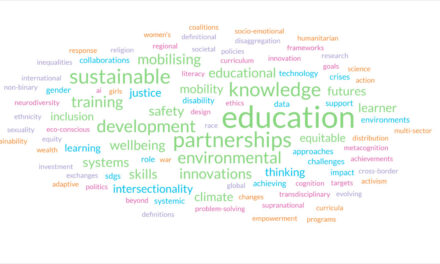This blog was written by Emma Sarton, Cambridge Education and UKFIET 2025 Conference Chair, and Francesca Salvi, University of Nottingham and Deputy Conference Chair.
Why we are excited to be chairing the 2025 UKFIET conference?
As chairs of the 2025 UKFIET conference, we are thrilled to be part of an event that embodies the intersection of theory, policy, and practice in education. Having been involved with UKFIET for a number of years, we are well aware of the conference’s spirit of bringing together practitioners, academics, and policymakers to drive meaningful change.
What makes this conference so special is its ability to foster true inter- and trans-disciplinary collaboration—bridging the gap between research and real-world impact. This year, more than ever, the challenges facing education demand our collective expertise, innovation, and commitment. We look forward to engaging discussions, fresh perspectives, and bold ideas that will help us navigate these critical times together.
Emma shares this excitement, emphasising the importance of knowledge sharing and experience exchange to drive educational change and improve educational access, engagement and quality for children and adults worldwide. For Francesca, being in a School of Education that values applied social sciences, the conference feels like home. It provides a platform to explore how theoretical insights can be translated into practical applications, ultimately benefiting educators and learners alike.
How does the UKFIET conference relate to the global education landscape?
The global education landscape is evolving rapidly, influenced by factors such as Artificial Intelligence (AI), shifting political dynamics, and economic constraints. UKFIET plays a crucial role in addressing these changes by fostering dialogue and collaboration among diverse stakeholders. The conference encourages participants to think critically about the future of education, considering both the opportunities and challenges presented by technological advancements and societal shifts. There is a need for education systems to be more responsive and flexible, ensuring that they can adapt to the needs of all learners, especially the most marginalised. Education also plays a key role in bridging the gap between past practices and future demands, promoting equitable and fair learning environments.
In today’s world, education is inherently future-oriented, yet it remains deeply rooted in past practices. Many educational systems are still based on outdated historical constructs, which make it difficult to adapt to the rapidly changing needs of society. The UKFIET conference provides a platform to question and challenge these outdated systems, encouraging innovative approaches that better serve the needs of young people and communities at large. By bringing together researchers, practitioners, and policymakers, the conference facilitates the exchange of ideas and experiences that can lead to meaningful change in education systems worldwide.
What do we want to see in terms of submissions?
We are eager to receive submissions that reflect the conference’s commitment to bridging academia and practice. We welcome scholarly contributions that offer practical insights and suggest avenues for implementation. Submissions should demonstrate how theoretical research can be applied in real-world settings, addressing current educational challenges. We also encourage practitioners to share their experiences and methodologies, highlighting the evidence and processes behind their work. By fostering a diverse range of submissions, we aim to create a rich dialogue that advances our understanding of effective educational practices and policies.
In particular, we are interested in submissions that explore how education systems can be more responsive and flexible. We want to hear about innovative approaches that challenge traditional practices and offer new ways of thinking about education. This includes addressing the needs of marginalised and vulnerable populations, ensuring that no one is left behind in the pursuit of quality education. We also encourage submissions that highlight the role of technology in education, exploring both its potential benefits and challenges. By bringing together diverse perspectives, we hope to create a conference that not only addresses the current state of education but also looks forward to the future, offering solutions that can be implemented in diverse contexts.
As Chairs, we are excited to facilitate this exchange of ideas and look forward to the innovative and impactful contributions from our participants. However, we also need to acknowledge that the conference this year will be in person only. We understand that this is problematic in terms of access and participation. Logistical constraints make it difficult to have a hybrid event, but we are planning ways to open up the conference findings and discussions to a wider audience.



